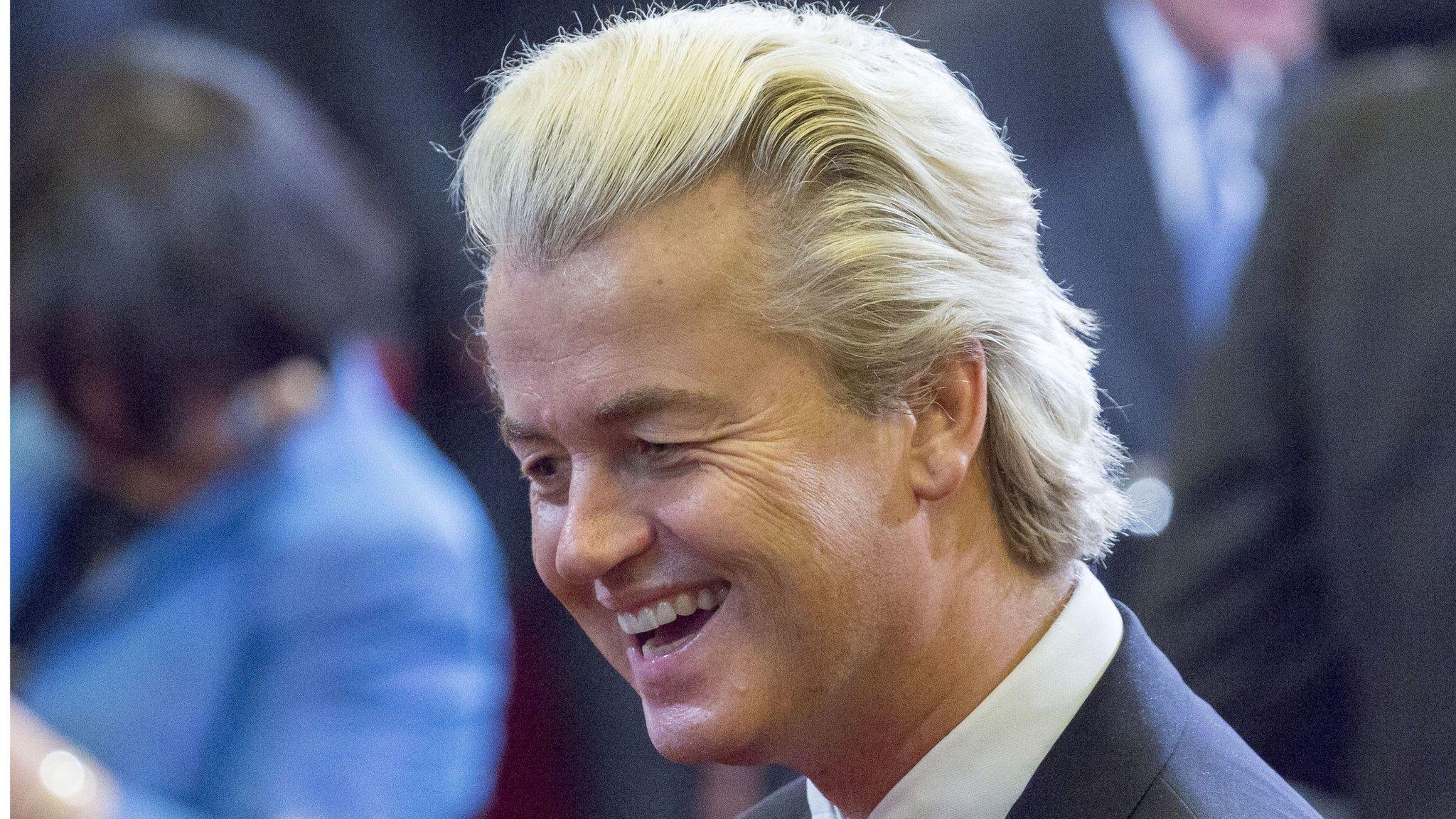UN human rights chief condemns Western 'demagogues'
- Published
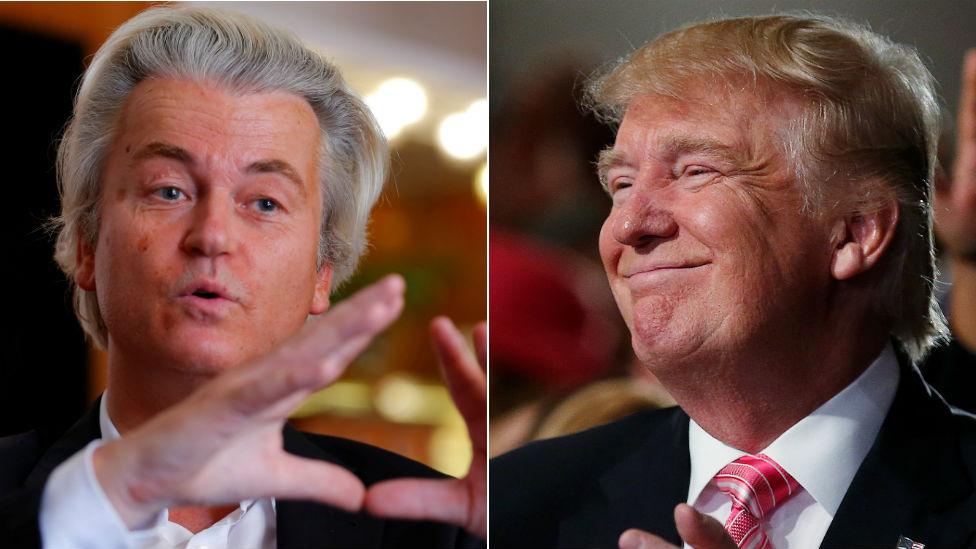
Geert Wilders, left, and Donald Trump use half-truths and oversimplification, Zeid Ra'ad Al Hussein said
The UN's human rights chief has launched a scathing attack on Western populist politicians, branding them "demagogues and political fantasists".
Zeid Ra'ad al-Hussein singled out Dutch far-right leader Geert Wilders, saying he used bigotry as a political weapon.
He said he and others, including US Republican Donald Trump and Brexit campaigner Nigel Farage, used the same tactics as so-called Islamic State.
Mr Hussein was addressing a security conference in The Hague.
In an election manifesto published last month, Mr Wilders said that if elected he would close all mosques and ban the Koran and Muslim immigrants.
His Freedom Party (PVV) is leading opinion polls in the Netherlands before the 2017 election.
Will Dutch follow Brexit with Nexit or stick to EU?
Guide to nationalist parties challenging Europe
Mr Wilders also addressed the US Republican Party National Convention in Cleveland, Ohio, last month. Mr Trump's campaign has been marked by hardline rhetoric on immigration and social issues.
Mr Hussein, the UN High Commissioner for Human Rights, told the inauguration of the Peace, Justice and Security Foundation, , externalthat he wanted to address his statement to "Geert Wilders, his acolytes, indeed to all those like him - the populists, demagogues and political fantasists".
"I am a Muslim, who is, confusingly to racists, also white-skinned; whose mother is European and father, Arab. And I am angry, too, because of Mr Wilders' lies and half-truths, manipulations and peddling of fear," Mr Hussein said.
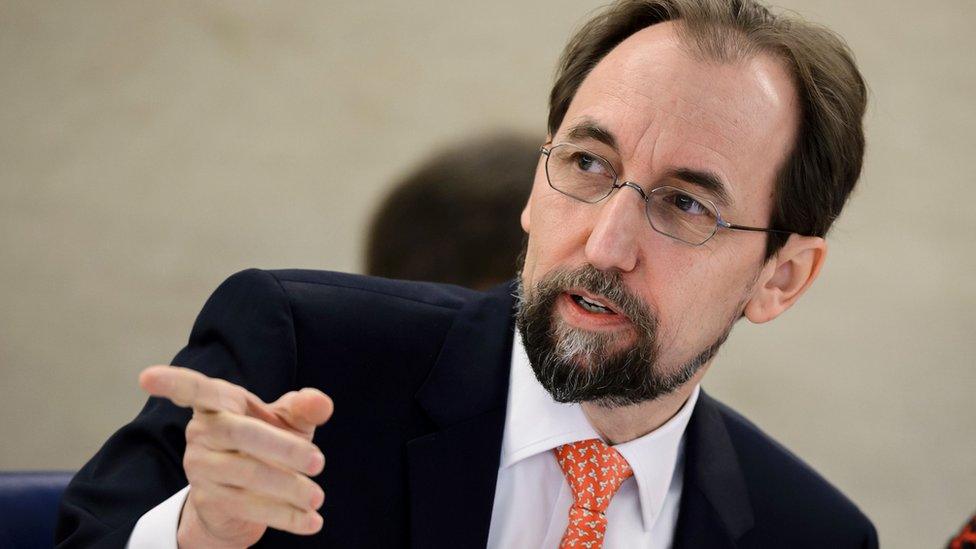
Zeid Ra'ad al-Hussein called for action against a rising tide of populism
He described the PVV manifesto as "grotesque" and said Mr Wilders had much in common with presidential hopeful Donald Trump, Hungary's Prime Minister Viktor Orban, France's National Front leader Marine Le Pen, and former UKIP party leader Nigel Farage.
He said all had similarities to the ideology espoused by the Islamic State (IS) group.
"All seek in varying degrees to recover a past, halcyon and so pure in form, where sunlit fields are settled by peoples united by ethnicity or religion. A past that most certainly, in reality, did not exist anywhere, ever."
He added: "Make no mistake, I certainly do not equate the actions of nationalist demagogues with those of Daesh (IS). But in its mode of communication, its use of half-truths and oversimplification, the propaganda of Daesh uses tactics similar to those of the populists."
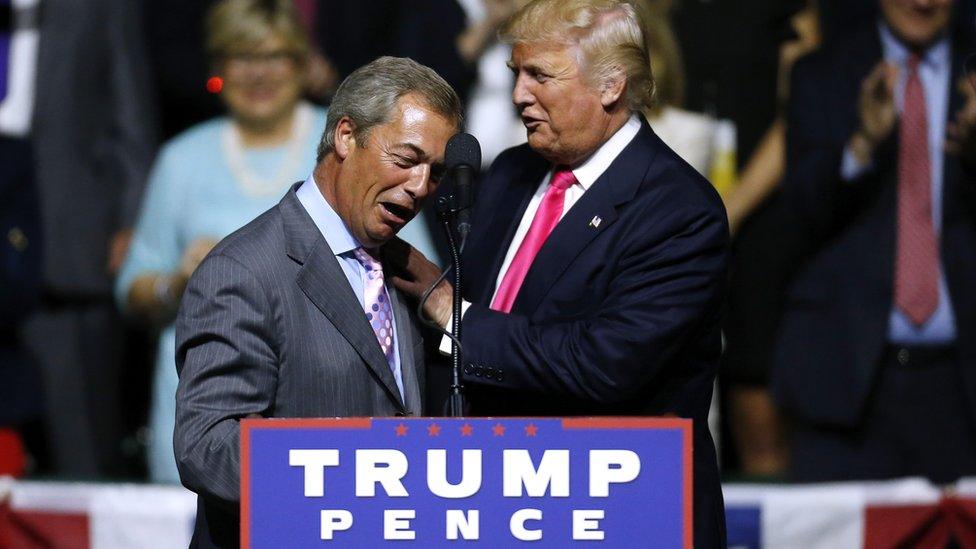
Nigel Farage spoke at a Donald Trump campaign rally in Mississippi in August
Mr Hussein said that the "humiliating racial and religious prejudice fanned by the likes of Mr Wilders" had become official policy in some countries.
"We hear of accelerating discrimination in workplaces. Children are being shamed and shunned for their ethnic and religious origins - whatever their passports, they are told they are not "really" European, not "really" French, or British, or Hungarian. Entire communities are being smeared with suspicion of collusion with terrorists," he said.
Mr Hussein warned that an atmosphere "thick with hate" could quickly descend into "colossal violence".
"A decade ago, Geert Wilders' manifesto and Cleveland speech would have created a worldwide furore. Now? Now, they are met with little more than a shrug, and, outside the Netherlands, his words and pernicious plans were barely noticed," he said.
"Are we going to continue to stand by and watch this banalisation of bigotry, until it reaches its logical conclusion?"
In the latest opinion survey by Dutch pollster Maurice de Hond, the PVV is projected to win the most seats, 37, in the 150-seat parliament, with Prime Minister Mark Rutte's Liberal Party (VVD) second on 23 seats.
In March, Geert Wilders appeared in court charged with inciting hatred against Moroccans.
His full trial is due to start on 31 October.
- Published18 March 2016
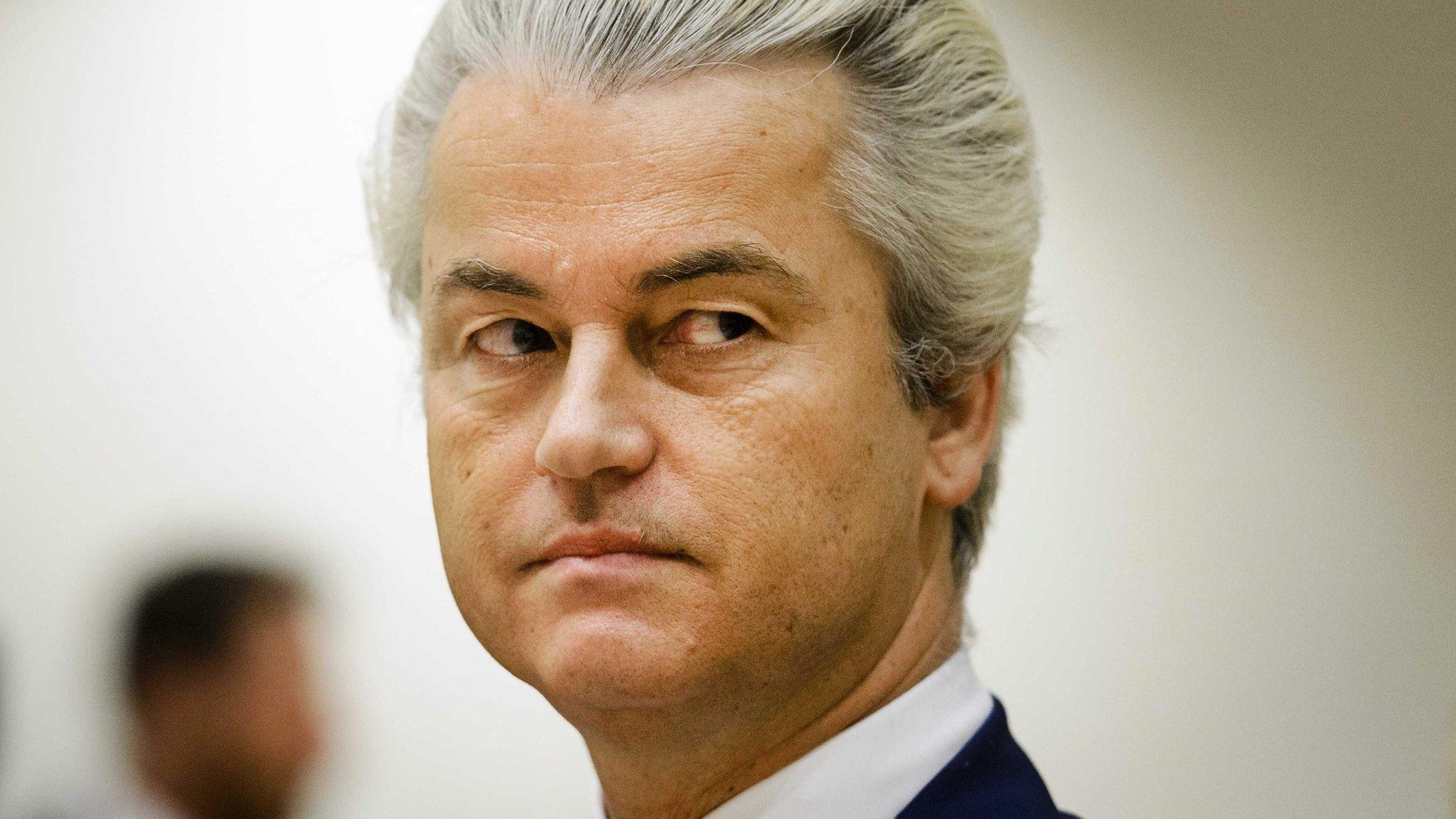
- Published18 October 2015
